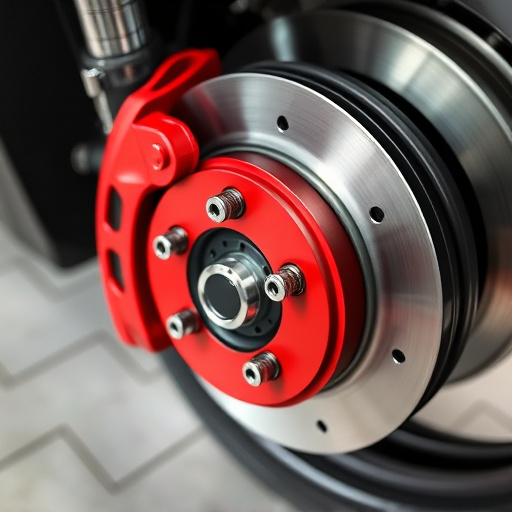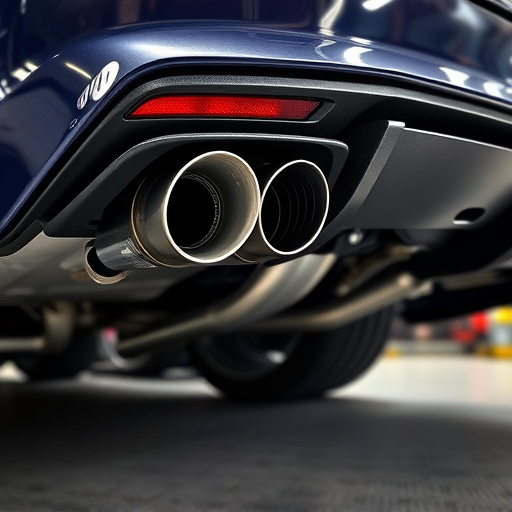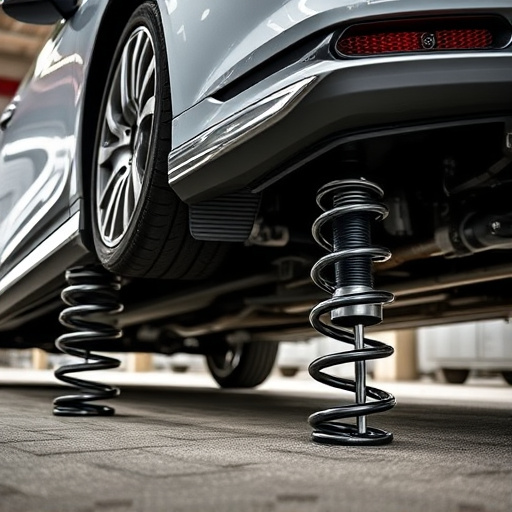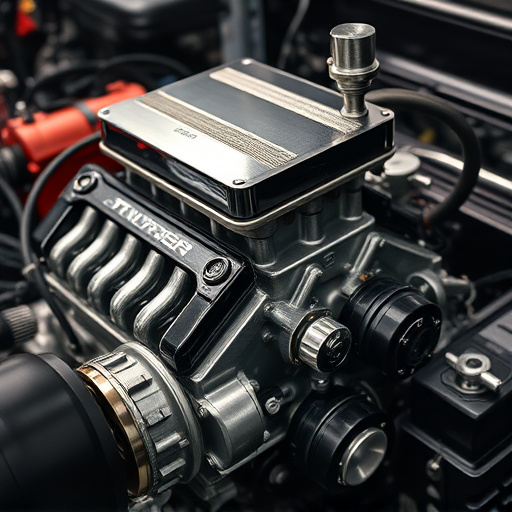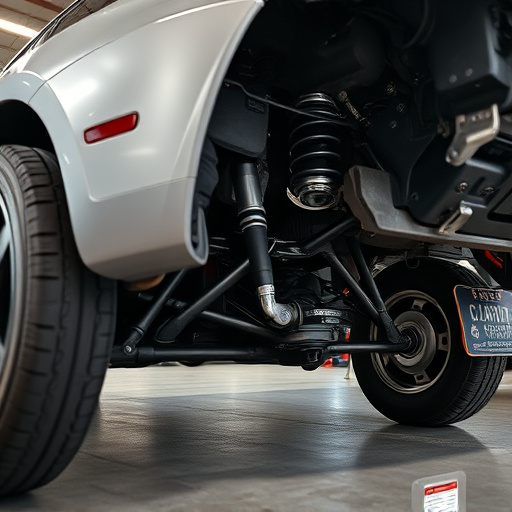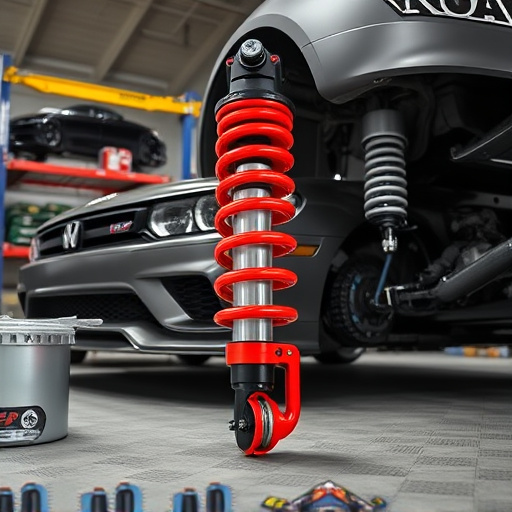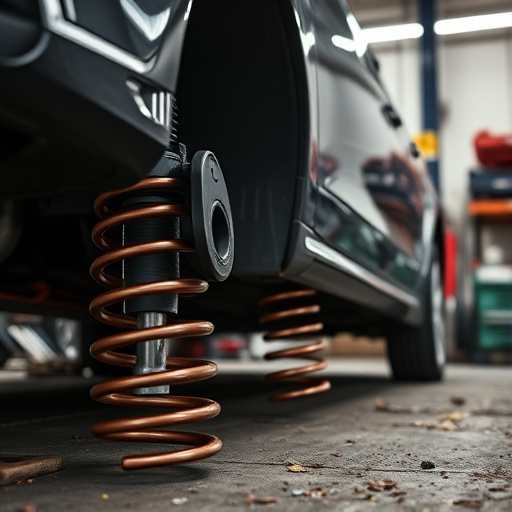Engine tuning optimizes performance and fuel efficiency through precise adjustments like spark timing, air-fuel ratios, and valve timing. This process is crucial for balancing power and economy, especially with upgraded components like exhaust systems or brakes. Experts strategize each modification to ensure efficient combustion, enhanced airflow, and overall engine harmony, catering to individual vehicle needs.
Engine tuning is an art that fine-tunes your vehicle’s performance, offering a delicate balance between raw power and fuel efficiency. This article delves into the fundamentals of engine tuning, exploring how to maximize both horsepower and miles per gallon (MPG). We’ll uncover strategies to optimize your vehicle’s performance, ensuring a harmonious relationship between acceleration and fuel economy. By understanding these techniques, you’ll gain the knowledge to make informed decisions in enhancing your driving experience.
- Understanding Engine Tuning Fundamentals
- Balancing Power and Efficiency: The Delicate Act
- Strategies for Optimizing Your Vehicle's Performance and Fuel Economy
Understanding Engine Tuning Fundamentals

Engine tuning is a complex yet essential process that fine-tunes various components within an engine to achieve optimal performance while maintaining fuel efficiency. At its core, it involves adjusting and modifying settings such as spark timing, air-fuel mixture ratios, and valve timing to maximize power output and minimize fuel consumption. This delicate balance is crucial, especially for vehicle owners who desire both high-performance parts and excellent fuel economy.
A well-tuned engine ensures that the combustion process is as efficient as possible, allowing for better airflow and fuel distribution. For instance, installing a cat-back exhaust system can enhance performance by reducing backpressure, but it must be accompanied by precise tuning to avoid excessive power loss. Similarly, upgrading to performance brakes might improve stopping capabilities, but proper tuning is necessary to maintain engine synchronization during braking events. Understanding these fundamentals is key to navigating the world of engine tuning and making informed decisions for your vehicle’s specific needs.
Balancing Power and Efficiency: The Delicate Act

Balancing power and efficiency is a delicate act in engine tuning. Every modification made to an engine, from upgrading intake components to installing a cat-back exhaust or even tweaking the suspension kits, has a ripple effect on both the vehicle’s performance and fuel economy. The goal is to optimize these aspects without creating an imbalance that could negatively impact the overall driving experience.
Engine tuning experts must carefully consider each change, understanding how it affects the engine’s combustion process, airflow, and overall efficiency. For instance, enhancing power through a modified intake system might improve acceleration but could also lead to higher fuel consumption. Conversely, focusing on improving MPG by refining exhaust systems or fine-tuning suspension can reduce power output. Therefore, achieving harmony between these two factors requires a strategic approach that considers the entire engine ecosystem and how each component interacts with one another.
Strategies for Optimizing Your Vehicle's Performance and Fuel Economy

Optimizing your vehicle’s performance and fuel economy is a delicate balance, but with careful engine tuning, it’s achievable. Strategies include fine-tuning the air-fuel mixture to ensure optimal combustion, adjusting ignition timing for maximum power delivery while minimizing waste, and optimizing spark plug placement for efficient combustion. Upgrading components like coilover kits can enhance suspension control, allowing precise handling and reduced drag, thereby improving fuel efficiency.
Additionally, focusing on the exhaust system with performance mufflers can improve flow and reduce backpressure, extracting more power from the engine without compromising efficiency. While high-performance brakes are primarily for track days, they contribute to better overall vehicle dynamics, indirectly affecting both performance and fuel economy by minimizing braking losses and allowing for smoother driving, which conserves fuel.
Engine tuning is a delicate art that involves optimizing various parameters to achieve a harmonious balance between power output and fuel efficiency. By understanding the fundamentals and employing strategic techniques, vehicle owners can enhance their car’s performance while maintaining reasonable mileage. These adjustments ensure a smoother driving experience, reduce costs at the pump, and contribute to a more sustainable future. With the right balance, engines can deliver both powerful performances and impressive fuel economy, catering to modern drivers’ demands.







